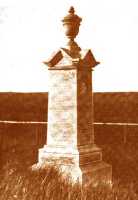A very large number of citizens of the United States can claim a heritage which includes Native American ancestors. For many of us, this is a part of our background about which we do not know as much as we would like. A desire to understand and honor our ancestors leads us to genealogical research in an effort to uncover the truth. For those who seek such knowledge, great rewards can be found.
However, the attempt to verify and document this ancestry can be challenging. For information purposes, before you begin you should be aware of the following:
• Resources will provide you with information about those individuals who were enumerated by the U.S. government at some point in their lives. This means that if your ancestor was not born on or a resident of a recognized tribal reservation, you may encounter difficulties.
• In many cases, names changed through the course of an individual’s lifetime. Even if your ancestor is documented, the name by which he/she was known within the family may not correspond to the name under which he/she was documented. To complicate matters further, an individual may be documented under a variety of names at different points in his/her life.
• The records are often incomplete or factually inaccurate. Much of the documentation was done by hand, by clerks and Indian Agents. Human error is very much a factor. It is also the case that women were sometimes documented under their husbands’ names, rather than their own (i.e., as “Mrs. Brown Bull”).
• A variety of strategies were employed to avoid being documented. In some cases, especially for those of mixed heritage, a child born at home might be baptized but have no birth certificate. The baptismal record would not include a racial designation. (For example, a white parent might later get a birth certificate for the child, and the child would be designated “white”, like the parent.) In many cases, avoidance of documentation was done with the best of intentions. Parents often sought to prevent discrimination against their children by denying any Native heritage. Remember, universal citizenship rights for Native Americans were not granted until 1924. Non-U.S. citizens were denied the right to vote, the right to hold property, the right to bring suit in a court of law, the right to serve on a jury … not to mention the social stigma of being “nonwhite” in a white-dominated culture.
With these caveats in mind, there are a number of resources available to help you track your Native ancestry. Some of these are public records and can be accessed online, while others would require a visit to the location where they are stored. Others are fee-based genealogy search engines.
The best places to begin are with official documents of the U.S. government. The federal Department of Interior and National Archives and Research Administration both provide very good guides to genealogical research based on federal records. They are located at the following addresses:
• Department of the Interior: http://www.interior.gov/genealogic.html
• National Archives and Records Administration (NARA): http://www.archives.gov/genealogy/
Best wishes for success in your search!
Tweet
Wounded Knee Massacre
December 29 1890

Wounded Knee Media
Great Sioux Nations of South Dakota
Wounded Knee Museum
Located at 207 10th Avenue, Wall, South Dakota 57790 - PO Box 348
-----------------------------------------------------Wounded Knee Museum will be reopening summer of 2017
After the fire in September 2012, The Wounded Knee Museum exhibits were reconstructed and displayed at a temporary location, but will be returning to their original location in Wall, South Dakota with an expected opening date of May 2017. We will be expanding our displays and exhibits. The Wounded Knee Museum opened in 2003 to share the events leading to the massacre at Wounded Knee in 1890.
We appreciate your continued support, understanding and prayers during this transition of rebuilding. We look forward to seeing you in 2017!
Subscribe via E-mail
2019 Powwow Schedule
South Dakota Powwow Schedule
Click the link above to
access the South Dakota
2014 Powwow schedule
Home |
About Us |
Oral History Program |
Museum Home |
Museum Store |
Virtual Tour |
Sports Mascots | Rescind Medals | Contact Us
Copyright © 2012 Wounded Knee Museum
Designed By: eVIZUAL Studio
Copyright © 2012 Wounded Knee Museum
Designed By: eVIZUAL Studio




1 comment:
Thanks!
Post a Comment